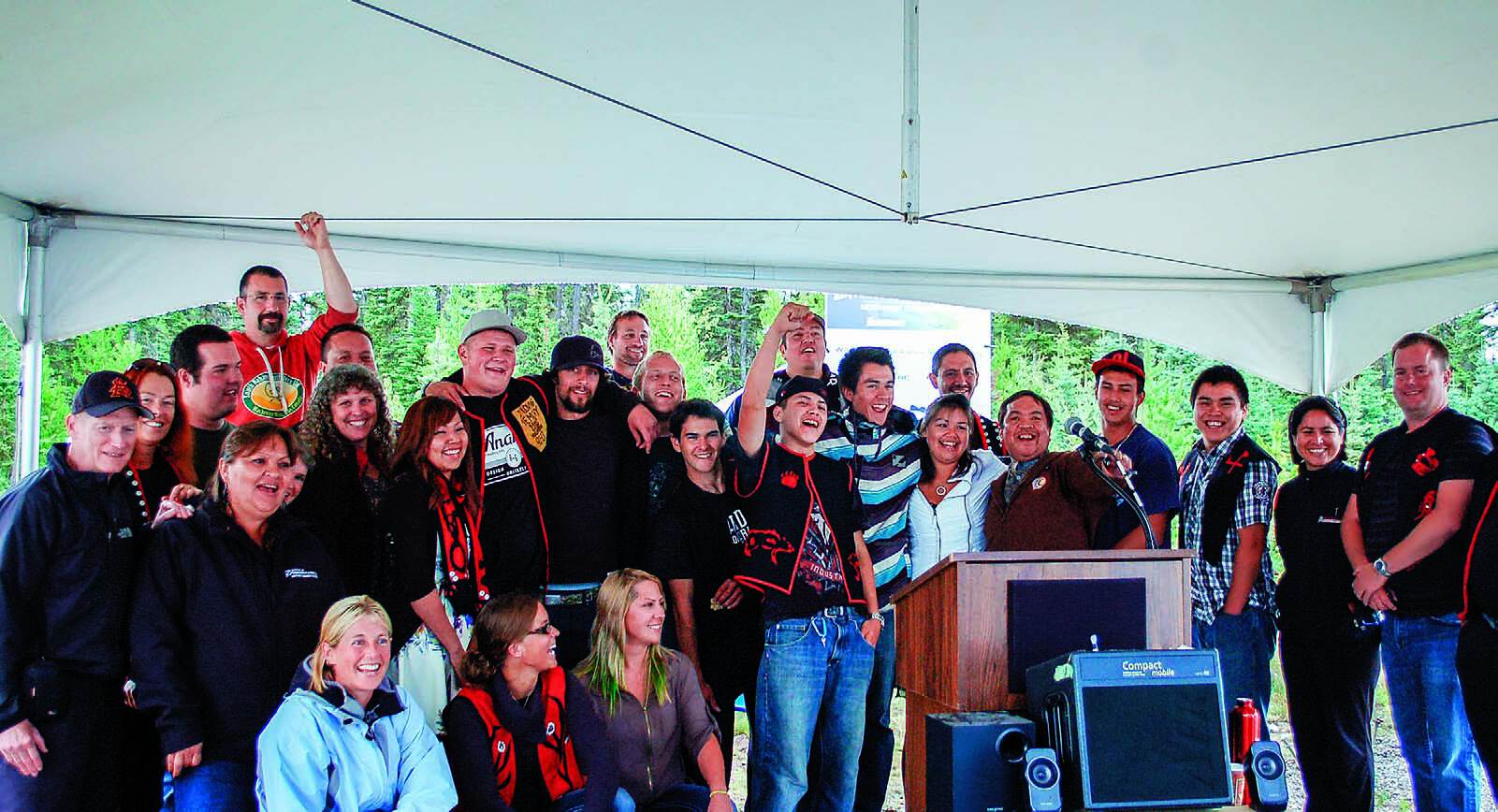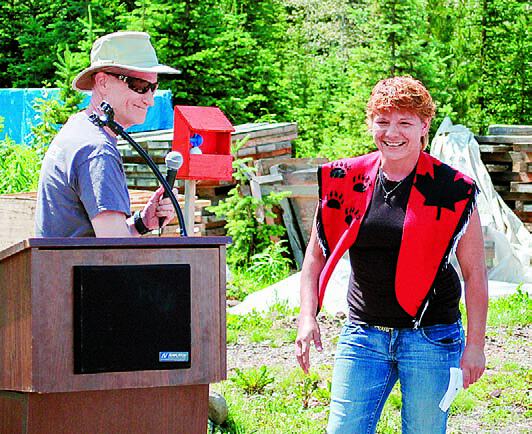
British Columbia is innovating to ensure the minerals industry has its next generation of employees ready for work, thanks to six initiatives ranging from mentoring to driver training.
One of the most inspirational ideas for developing the new generation comes from Patrick McAndless, vice-president of exploration with Imperial Metals. He warns that, “[while] Canadian geoscientists and engineers are world leaders right now, that will not be the case in the next 10 years unless we support and guide the next generation in our industry.”
To head off that shortage, McAndless has spoken at 80 post-secondary institutions across North America and Europe. He inspires students to choose exploration and mining and then mentors them at each stage of career development and work.
This mentoring road trip has taken McAndless from the Ivy League institutions to the Ganokwa training camp run by the Northwest Community College School of Exploration and Mining near Smithers, B.C. He brings students to their feet, shouting their passion for their new careers, and they leave with a practical process for creating marketing tools for getting discovered.
Anderson Leung is currently studying mineral resource engineering, but in 2012 he was simply a student at the Ganokwa training camp where McAndless spent an evening. “Mr. McAndless goes out of his way to help geosciences students succeed in school and on the job,” says Leung. “In my case, Mr. McAndless let me participate in Imperial Metals’ mentoring program, where I gained my very first invaluable field experience.”
Mentoring on a larger scale, the new B.C. Centre of Training Excellence in Mining (CTEM) will provide B.C.’s post-secondary institutions with a central point for sharing expertise in minerals training. “The British Columbia government has shown innovation in launching the new Centre,” says CTEM chair Dave Lefebure. “It will help facilitate collaboration between colleges and universities and the mineral industry in developing responsive training programmes.” Administered through Northwest Community College in Smithers, CTEM will operate as a “virtual” hub.

Also in Smithers, an innovative partnership is giving 16 high school students a head start on a career closely connected to the minerals industry. Students in the Environmental Monitor Assistant Program earn high school graduation credits as well as credits at nearby Northwest Community College. Funding for the dual-credit program comes from the BC Mining Human Resources Task Force with contributions from School District 54, the Ministry of Aboriginal Relations and Reconciliation, the Office of the Wet’suwet’en, Smithers Exploration Group, and Imperial Metals Corporation.
Partnerships between AME BC and two training institutions reflect the new strategic plan’s commitment to training for First Nations.
The first initiative, with the British Columbia Institute of Technology (BCIT), takes minerals training to First Nation communities. The Aboriginal Minerals Training Program (AMTP) is designed to build the skills needed for employment in the minerals industry. The training starts with a two-day workshop that provides an overview of the industry and the opportunities available for aboriginal communities. This progresses to a two-week training course in basic geology.
AMTP co-ordinator Jim Morin has taken the program to almost 50 communities around B.C., reaching more than 700 students since 2006. He says, “aboriginal people now have a pathway that assists them in getting training and in getting employment [in the minerals industry].”
In another very successful AME BC partnership, the six week Workforce Exploration Skills Training (WEST) program was delivered last summer by Northwest Community College’s School of Exploration and Mining. Funding was provided through the Canada–British Columbia Labour Market Agreement.
Almost 75 per cent of WEST graduates found work in this challenging exploration season, thanks to innovative field-based training that provides a realistic exploration camp environment and training from industry instructors.
“Many of B.C.’s 350 mineral exploration and development projects are located near First Nations communities; the alignment between the industry’s need for workers and the aboriginal population’s need for jobs and capacity building is very strong, ” says Gavin Dirom, president and CEO of AME BC.
Shane Gibson from the Gitanyow Band is a WEST graduate who strongly agrees. “I can’t think of a more effective way of teaching this material other than living it and working with people from all walks of life.”
Despite the field training, one of the biggest barriers to employment for First Nations is the lack of a driver’s licence. The BC Aboriginal Mine Training Association (BC AMTA) is addressing that. BC AMTA has customized a five-day workshop to assist candidates in passing ICBC’s driver’s licensing test. To prepare candidates to write the driver’s test, BC AMTA adapted ICBC’s material into a toolkit. Staff ensures a supportive learning environment where candidates are comfortable asking questions and working together.
Innovations such as BC A MTA’s driver training, Pat McAndless’ tireless mentoring and Northwest Community College’s high school dual-credit program are ensuring that B.C. successfully trains a new generation of minerals industry employees.
